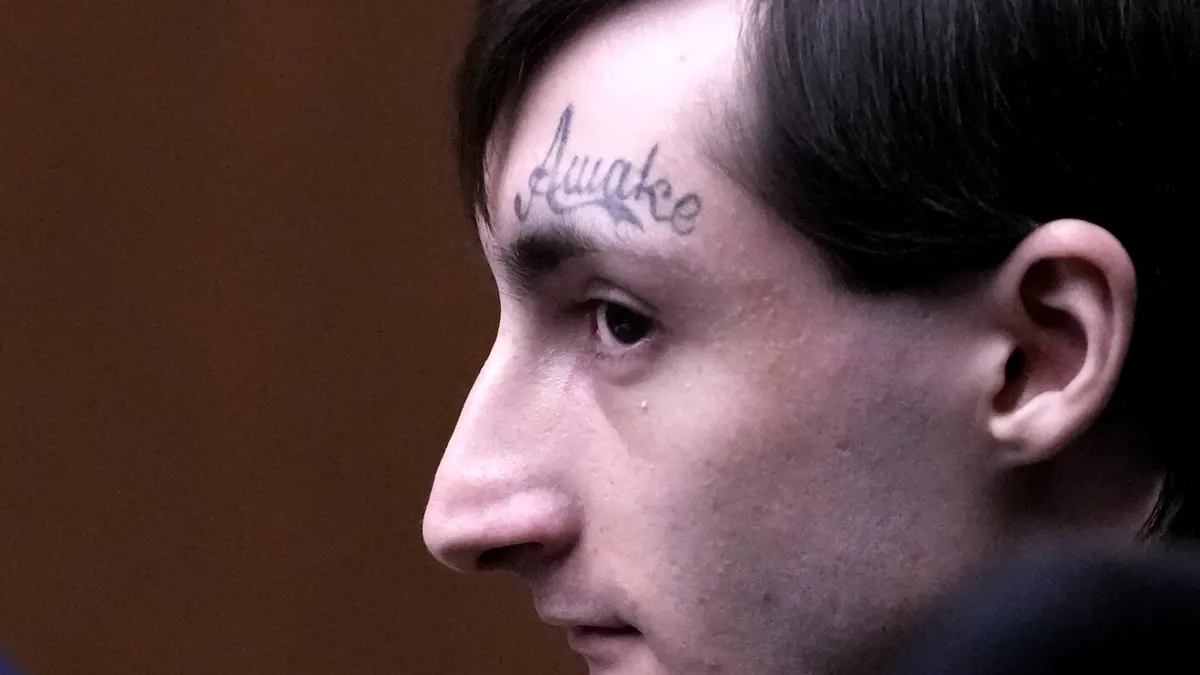
In a tragic turn of events, a suburban Chicago man, Robert E. Crimo III, was sentenced to life in prison without the possibility of parole for the 2022 Independence Day parade shooting that claimed the lives of seven individuals and injured dozens more. The sentencing took place on Thursday in Lake County, where Judge Victoria Rossetti imposed seven consecutive life sentences, as requested by prosecutors. This decision followed emotional testimonies from survivors and the families of the victims, highlighting the profound impact of the shooting.
During the sentencing, Judge Rossetti expressed her struggle to find words that could adequately convey the horror and pain caused by the events of July 4th. She described Crimo, at just 24 years old, as someone who exhibits a "complete disregard for human life," labeling him as "irretrievably depraved" and "beyond any rehabilitation." Crimo's actions during the shooting have left an indelible mark on the community, forever changing the lives of those involved.
The legal journey for Crimo has been notably tumultuous. Initially declining to attend most of his sentencing hearings, he ultimately changed his mind as the judge began delivering the sentence. This change came after a series of unpredictable legal maneuvers, including backing out of a plea deal, firing his public defenders, and even waiving his right to trial. Just prior to the opening statements of his trial, he changed his plea to guilty, admitting to 21 counts of first-degree murder and 48 counts of attempted murder.
In the courtroom, survivors and witnesses shared heart-wrenching accounts of how their lives have been irrevocably altered since the shooting. Keely Roberts, mother of the youngest victim, an 8-year-old boy named Cooper who was left paralyzed, labeled Crimo as "cowardly" for his absence during the proceedings. She expressed her grief, stating, "You are now irrelevant." This sentiment echoed throughout the courtroom as many voiced their anger and sorrow.
Prosecutors painted a chilling picture of the events that unfolded on that fateful day, arguing that Crimo had meticulously planned the horrific attack, firing 83 shots in just 40 seconds. Lake County State’s Attorney Eric Rinehart emphasized that this was not a random act; Crimo intended to shatter the happiness he observed around him. The courtroom was filled with emotional testimonies, as witnesses recounted the chaos of the parade, where a marching band was abruptly interrupted by gunfire.
The prosecution presented substantial evidence, including Crimo's videotaped confession. Despite efforts by his defense team to suppress the confession, it revealed a calm and collected Crimo discussing how he prepared for the attack, even joking during the interview. This demeanor starkly contrasted with the devastation he caused, as many victims and their families continue to navigate the aftermath of the shooting.
The impact of the shooting resonates deeply within the community of Highland Park, which has a population of approximately 30,000. Survivors, like Erica Weeder, described the trauma of being injured and helpless while witnessing the suffering of others. Her account illustrated the profound psychological effects of such violence, likening a mass shooting to a "bomb blast" that reverberates throughout the community.
The seven victims of this tragic incident included Katherine Goldstein (64), Jacquelyn Sundheim (63), Stephen Straus (88), Nicolas Toledo-Zaragoza (78), Eduardo Uvaldo (69), and married couple Kevin (37) and Irina McCarthy (35). Their memories will forever be etched in the hearts of their loved ones and the community, serving as a poignant reminder of the devastating impact of gun violence.
In conclusion, the sentencing of Robert E. Crimo III marks a significant moment for the victims' families and the Highland Park community. As they continue to heal from this tragedy, the call for justice and reflection on the broader issue of gun violence remains a pressing concern.